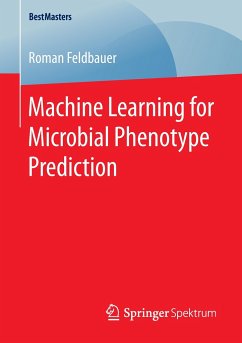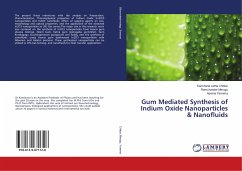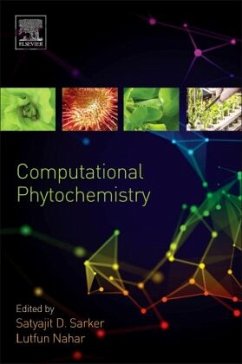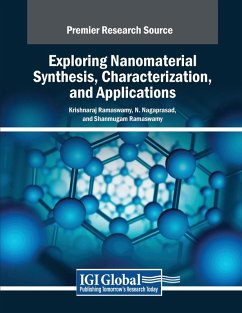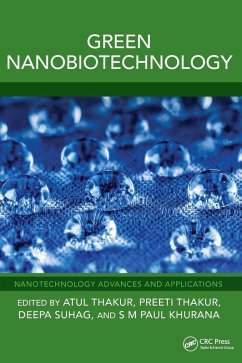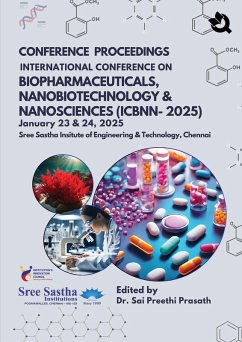
Synthesizing and Characterizing Plant-Mediated Biocompatible Metal Nanoparticles
Versandkostenfrei!
Versandfertig in 1-2 Wochen
293,99 €
inkl. MwSt.

PAYBACK Punkte
147 °P sammeln!
Metal nanoparticles, ranging from 1 nanometer (nm) to 100 nm, possess unique physical, chemical, and biological properties, driving significant scientific and technological advancements. Traditional methods for producing these nanoparticles, such as physical and chemical synthesis, are often costly, time-consuming, and hazardous to health. In response, green synthesis has gained popularity due to its non-toxic, eco-friendly, and cost-effective approach. This method uses plant materials and microorganisms to produce stable, biocompatible nanoparticles. As a result, green synthesis is becoming a...
Metal nanoparticles, ranging from 1 nanometer (nm) to 100 nm, possess unique physical, chemical, and biological properties, driving significant scientific and technological advancements. Traditional methods for producing these nanoparticles, such as physical and chemical synthesis, are often costly, time-consuming, and hazardous to health. In response, green synthesis has gained popularity due to its non-toxic, eco-friendly, and cost-effective approach. This method uses plant materials and microorganisms to produce stable, biocompatible nanoparticles. As a result, green synthesis is becoming a promising alternative for the development of metal nanoparticles. Synthesizing and Characterizing Plant-Mediated Biocompatible Metal Nanoparticles describes the domain of synthesizing and characterizing plant-mediated biocompatible metal nanoparticles, exploring numerous applications from fostering a sustainable environment to diverse nanotechnological applications such as drug discovery, cancer treatment, and beyond. It further addresses a broad spectrum of societal and technological challenges and related issues, thereby assisting stakeholders in making informed decisions within this rapidly evolving field in our dynamic and contemporary scientific society. Covering topics such as antibiotics, nano-fertilizer, and wastewater treatment, this book is an excellent resource for policymakers, industry professionals, academicians, researchers, graduate and postgraduate students, and more.




